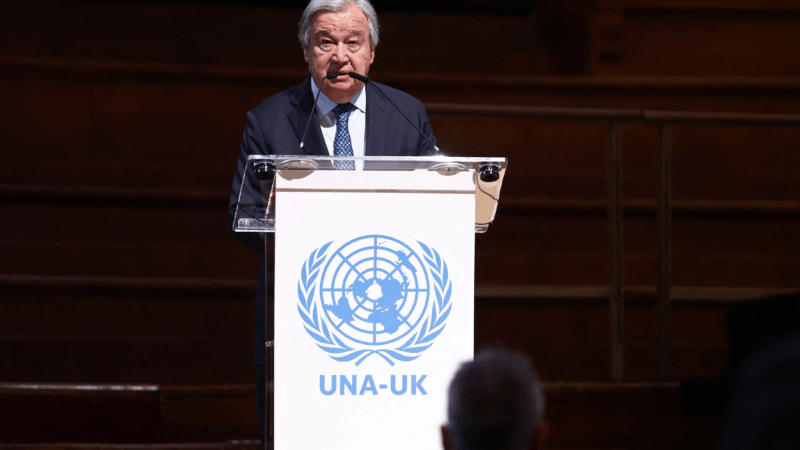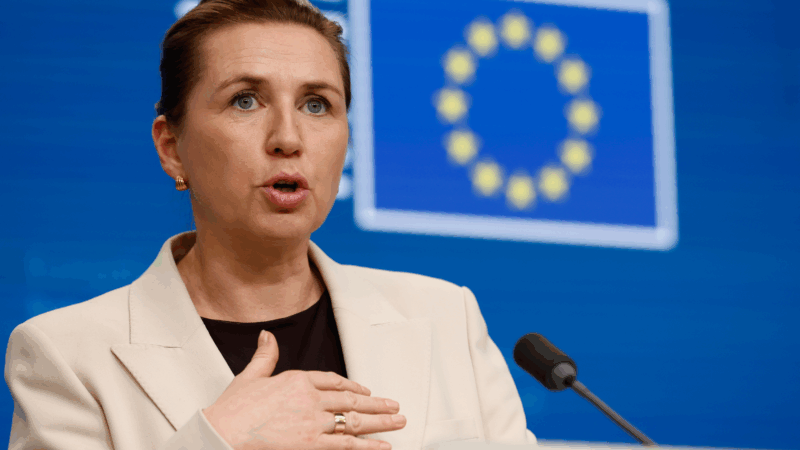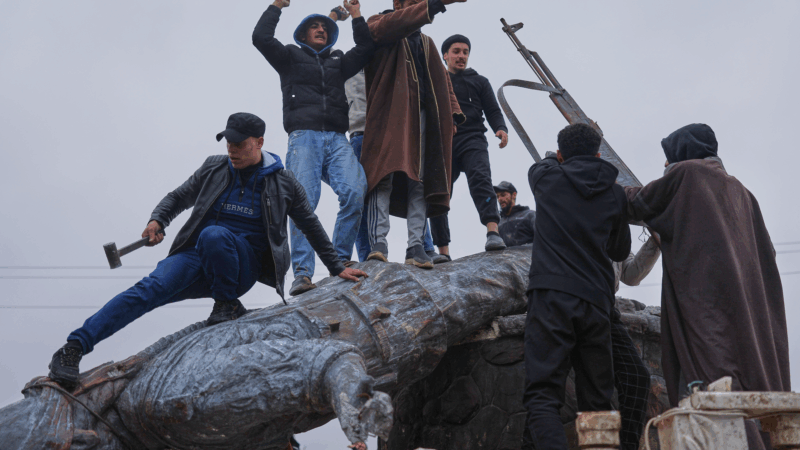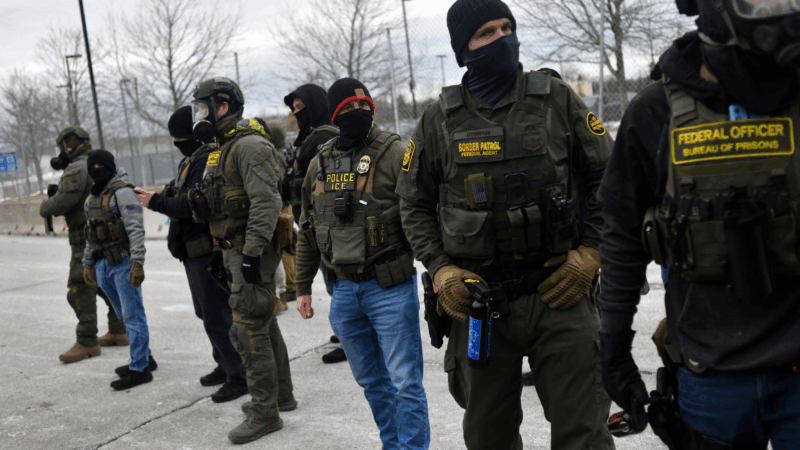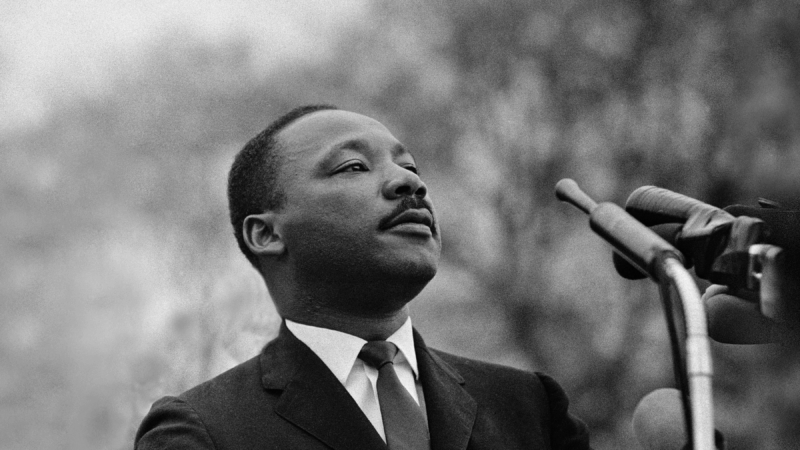Palestinians freed in the ceasefire say Israeli forces harass them and their families

KFAR AQAB, East Jerusalem — Ashraf Zughayer was given two days’ notice before being released from Israeli jail after more than two decades.
“I felt like I was born again,” the 47-year-old Palestinian says, sitting on the couch in his family’s living room.
Zughayer was arrested in 2002 for being a member of Palestinian militant group Hamas and driving a suicide bomber to an attack on a Tel Aviv bus that killed six people. He was sentenced to 600 years.
But after serving 23 years, Zughayer was released in January as part of the hostage-for-prisoner exchange outlined in a ceasefire deal between Israel and Hamas.
Nearly 2,000 Palestinian prisoners and detainees have been released from Israeli jails in recent weeks, in exchange for 33 Israeli hostages freed by Hamas. Many of the Palestinians released, like Zughayer, had life sentences for deadly attacks on Israelis, while others — including women and minors — had been held in administrative detention without charges or sentences. More than half of the Palestinians were sent to Gaza. But several hundred were released to their families in the Israeli-occupied West Bank — and they allege harassment, arrests and intimidation by Israel after they were freed.


When Zughayer was released, he says members of his family immediately drove him home, where his parents were waiting for him.
“That was the best moment of my life, seeing my parents in our house, and not in jail,” Zughayer remembers.
His mom had cooked a big meal, and people from all around the neighborhood had gathered. But the celebration was short-lived.
Just a few hours later, Israeli soldiers and police raided the house, guns raised, according to the family and several New York Times journalists who were there covering Zughayer’s release. The Israeli forces made people, including children, lie on the floor, and arrested Zughayer’s brother.
Israeli police came back a few days later and arrested 12 more members of the extended family.

The police told NPR they were arrested for “involvement in a recent demonstration supporting a terrorist.” A police report says they were waving Hamas flags and shot off a gun. The family denies that.
“My relatives tried to argue in the court, saying that we were celebrating him because he is our family, and not because he’s Hamas,” Zughayer says. The argument didn’t work, he says.
Israel says celebrations around prisoner and detainee releases encourage violence and terrorism, and has long discouraged them. The government has been especially adamant about it during this ceasefire deal, banning them. But Palestinians say the rules are ambiguous, and call the ban an intimidation tactic.
The releases have coincided with a major Israeli military operation in the West Bank, which Israel says is for counterterrorism, and began two days after the Gaza ceasefire deal went into effect. Israel’s defense minister, Israel Katz, recently visited Israeli troops in the Tulkarem refugee camp, putting out a video statement in which he warned newly released Palestinians.
“I warn the terrorists released to the West Bank — we are watching you, and we will hunt down and eliminate anyone involved in terrorism,” Katz said.


A wider pattern
Qadura Fares was the head of the Palestinian Prisoner Affairs Commission for more than 30 years, the official Palestinian group that deals with detainees. He was recently fired from the position by Palestinian Authority President Mahmoud Abbas after a disagreement. NPR spoke with Fares while he was still in the position.
He said what happened at the Zughayer house was an extreme case, but it fit a wider pattern.
“The Israelis play some silly games,” Fares said. “In all the villages, all the refugee camps, the Shabak are phoning the families.”
The Shabak is Israel’s internal security agency. Fares said released detainees and their families get frequent phone calls, reminding them not to celebrate. The security agency, also known as Shin Bet, did not respond to NPR’s requests for comment.

“And Israel keeps arresting as part of their strategy,” Fares said.
Israeli forces are still arresting Palestinians in the West Bank on a daily basis, especially with the new military operation there. So even as hundreds of Palestinians have been released from Israeli jails to the West Bank over the past month, hundreds more have been arrested or detained during that time. More than 9,000 Palestinians are still being held in Israeli jails, according to Israeli and Palestinian human rights groups — a number that roughly doubled since the war in Gaza began in 2023.
And, Fares pointed out, the ceasefire deal does not specify that those who are released can’t be rearrested.
A previous truce between Israel and Hamas in November 2023 involved the exchange of hostages for prisoners and detainees as well. More than 30 of the 240 or so Palestinians released in that deal were later rearrested, and four killed by Israeli forces. Fares said it’s a way of keeping former detainees and their families on their toes.


Families on edge
In a small Palestinian village outside of Ramallah, in the West Bank, Rudeina and her nephew Hamad sit in the family living room. A framed portrait of Rudeina’s brother, Hamad’s uncle, hangs on the wall above their heads. He is set to soon be released after 16 years in Israeli jail on charges of being affiliated with Hamas.
NPR is not using the family’s last name because they say they’ve been threatened by Israeli forces and fear for their safety. Soldiers were just at the house a few hours ago.
“They came here, and stood right outside the door, and told us celebrations are not allowed,” Hamad says. “They said that if we celebrated, they would raid the house, and arrest anyone involved.”
Rudeina says it all has the family on edge. “We are so happy that he’s coming out, because every day out means a better life for him. But the atmosphere in the house is still very sad. We’re just so worried,” she says.
As she’s talking, another member of the family pokes their head into the living room and says word has spread through a neighborhood WhatsApp group that the Israeli military is at another house down the street. Rudeina keeps getting up to look out the window nervously.
“Maybe after you leave, the soldiers will come back,” she says.
Minutes later, as NPR’s team walks out the door, three armored military jeeps waving the Israeli flag drive by the house, and continue down the street.

Nuha Musleh contributed to this report from the West Bank. Itay Stern contributed from Tel Aviv, Israel.
Transcript:
MARY LOUISE KELLY, HOST:
Hundreds of Palestinian prisoners and detainees have been freed from Israeli jails these past few weeks. That’s in exchange for the release of Israeli hostages held by Hamas in Gaza. It’s part of the fragile ceasefire deal between Israel and Hamas. Many of those Palestinians were released to their families in the Israeli-occupied West Bank, and they allege harassment, arrests and intimidation by Israel. NPR’s Kat Lonsdorf reports.
(SOUNDBITE OF BANGING)
KAT LONSDORF, BYLINE: The Zughayer house is at the end of a long residential street in East Jerusalem. On the morning we visit, kids are running around. It’s full of family. We’re here to see 47-year-old Ashraf Zughayer, who was recently released after 23 years in Israeli jail.
ASHRAF ZUGHAYER: I feel I was born again.
LONSDORF: He was arrested in 2002 for being a member of Hamas and driving a suicide bomber to an attack on a Tel Aviv bus. Six people were killed. He was sentenced to 600 years in jail. Ashraf said, when he heard he would be released…
ZUGHAYER: Tell me – that’s dream or truth?
LONSDORF: When he got released, members of his family immediately rushed him home where his parents were waiting for him.
ZUGHAYER: That’s the best moment in my life. Yeah.
LONSDORF: His mom had cooked a big meal, and people from all around the neighborhood gathered. But the celebration was short-lived.
ZUGHAYER: Two hours after that, soldiers of the Israeli occupation forced my house.
LONSDORF: Israeli forces raided the house, guns raised, according to the family and several New York Times journalists who were there covering it. They forced people, including children, to the floor. They arrested Ashraf’s brother. They came back two days later and arrested 12 more members of the Zughayer family. The Israeli police told NPR they were arrested for, quote, “involvement in a recent demonstration supporting a terrorist.” A police report says they were waving Hamas flags and shot off a gun. The family denies that.
ZUGHAYER: (Speaking Arabic).
LONSDORF: Ashraf says his relatives tried to argue, saying they were celebrating Ashraf’s release because he’s family, not because he’s Hamas. Israel says such celebrations encourage violence and terrorism and has long discouraged them. And the government has been especially adamant about it during this ceasefire deal, banning them. But Palestinians say the rules are ambiguous and that the ban is an intimidation tactic.
QADURA FARES: The Israelis play some silly games.
LONSDORF: Qadura Fares is the head of the Palestinian Prisoner Affairs Commission, the official Palestinian group that deals with detainees. He says what happened at the Zughayer house is an extreme case, but it fits a wider pattern.
FARES: In all the villages, all the refugee camps, the Shabak phone the family.
LONSDORF: That’s Israel’s internal security agency. Fares says released detainees and their families get frequent phone calls, reminding them not to celebrate. The security agency, also known as Shin Bet, did not respond to NPR’s requests for comment. And Fares points out…
FARES: Israel continue arresting as part of their strategy.
LONSDORF: Israeli forces are still arresting Palestinians in the West Bank on a daily basis, especially since it launched a major operation there just as this ceasefire deal went into effect. So even as hundreds of Palestinians have been released from Israeli jails in recent weeks, hundreds more have been arrested or detained during that time. And…
FARES: Those that they released – they could rearrest them again.
LONSDORF: Dozens of those released in the first ceasefire deal back in 2023 were later rearrested and four killed by Israeli forces. Fares says it’s a way of keeping former detainees and their families on their toes.
RUDEINA: (Non-English language spoken).
LONSDORF: In a small Palestinian village outside of Ramallah, Rudeina and her nephew Hamad welcome us to their family home. We’re not using their last names because they tell us they’ve been threatened by Israeli forces, and they fear for their safety. Rudeina’s brother, Hamad’s uncle, is soon to be released after 16 years in Israeli jail on charges of being affiliated with Hamas.
HAMAD: (Speaking Arabic).
LONSDORF: Hamad says Israeli soldiers were just at the house a few hours ago.
HAMAD: (Speaking Arabic).
LONSDORF: He says the soldiers told them that if the family celebrates, they’ll raid the house and arrest anyone who participated.
RUDEINA: (Speaking Arabic).
LONSDORF: Rudeina says it all has the family on edge. As we’re talking, another member of the family pokes their head into the living room and says word has spread that the Israeli military is at another house down the street. Rudeina keeps getting up to look out the window nervously.
RUDEINA: (Non-English language spoken).
LONSDORF: “Maybe after you leave,” she says, “the soldiers will come back.”
We pack up and head out just as 1, 2, 3 armored military jeeps waving the Israeli flag drive by the house and continue down the street. Kat Lonsdorf, NPR News, in the occupied West Bank.
United Nations leaders bemoan global turmoil as the General Assembly turns 80
On Saturday, the UNGA celebrated its 80th birthday in London. Speakers including U.N. Secretary-General António Guterres addressed global uncertainty during the second term of President Trump.
Parts of Florida receive rare snowfall as freezing temperatures linger
Snow has fallen in Florida for the second year in a row.
European leaders warn Trump’s Greenland tariffs threaten ‘dangerous downward spiral’
In a joint statement, leaders of eight countries said they stand in "full solidarity" with Denmark and Greenland. Denmark's Prime Minister Mette Frederiksen added: "Europe will not be blackmailed."
Syrian government announces a ceasefire with the Kurdish-led Syrian Democratic Forces
Syria's new leaders, since toppling Bashar Assad in December 2024, have struggled to assert their full authority over the war-torn country.
U.S. military troops on standby for possible deployment to Minnesota
The move comes after President Trump again threatened to invoke the Insurrection Act to control ongoing protests over the immigration enforcement surge in Minneapolis.
Martin Luther King Jr. had a dream … about health care
A doctor from Nigeria tells what Martin Luther King Jr. taught him about health, Justice and inequality.

